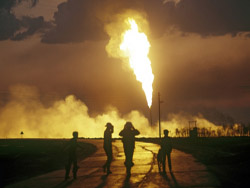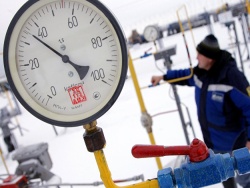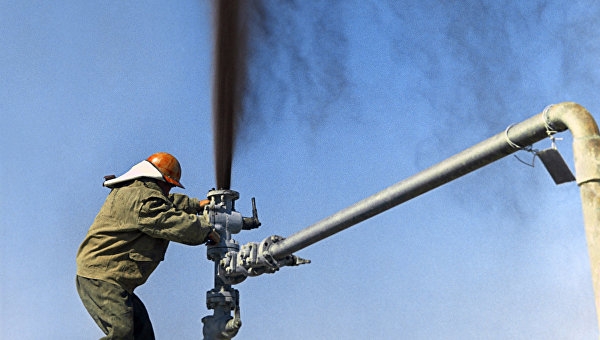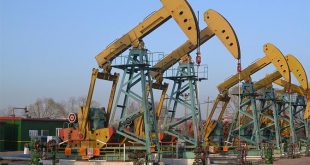
Living in Russia, it’s hard not to believe the stories that the oil is in the center of the global geopolitical games, and Russia as its largest producer, is their most important participant.
Living in Russia, it’s hard not to believe the stories that the oil is in the center of the global geopolitical games, and Russia as its largest producer, is their most important participant.
Indeed, oil — the most actively traded exchange traded product in the world, its consumption in 2015 is estimated at $1.86 trillion, with 64,5% of this volume crosses national borders. Oil is the main source of income for almost every tenth inhabitant of the Earth — from her critically depend on the living conditions of the citizens of Nigeria, Angola, Venezuela, Iraq, Iran and some other countries, more than 90% of exports which occur in the hydrocarbons. Despite the fact that many experts promise the advent of renewable energy sources (and such indeed has chances to become a reality), oil still occupies nearly 33% in global energy balance. But does this mean that her role is and will remain the same?
Some experts connect the future problems of oil producing countries that global oil consumption will be reduced, this product will become unnecessary and prices will collapse. This statement, however, seems to me to be too blunt and questionable — at least catastrophic (petrostates) price minimums 1989 and 1998 was observed on the background of growing world oil consumption (respectively 2.0% and 1.0%, which remained within multi-year average). Alternative energy sources remain expensive and it is unlikely that their rapid development is possible when prices fall below $50 per barrel. The problem, in my opinion, lies elsewhere — in the fact that fluctuations in the oil market, providing not less significant than before, the impact on the economy of its producers, already almost do not care about the consumers and thus radically reduce the chances of petrostates to influence global processes.
Between 1973 and 1982, the Western world faced an energy crisis — in fact the only one in its history. The sharp rise in oil prices (from $of 2.48 per barrel in 1972 to $35,9 in 1981 in current prices) has led to the growth of inflation (CPI in the USA in 1979 reached 13.3%), rapid rise in interest rates and the collapse of investment. Despite the fact that since the beginning of the 1980s, major economies began to adjust to the new reality, and then oil prices began to decline, the impact was considered very sensitive. It was the finest hour in oil and other commodity cartels, when developing countries have shown that very little separates them from the historic revenge, and establishing a new world economic order. The reason for this situation lay in one rather simple and obvious fact.
The economies of most developed countries in the mid-1970s belonged to energy and fuel as a resource, offered in excess. In 1974, used in all German cars consume same amount of petrol and diesel, how much and all that once traveled the roads of the United Germany 40 years later, although they became almost three times more. In 1976 the engines of the big American cars of power superior to motors light bombers during the Second world war. All this and many other such things led to the fact that total oil consumption in the United States (18.4 million barrels per day in 1979) were estimated in current prices in the $213 billion, or 8.3% of the GDP of the United States. In Europe, the ratios were 6.4 to 7.6 percent, but still there is no doubt that another, for example double, rising prices, no Western economy would not survive without having to go into serious crisis that could not be delayed for one year.
Over the past 40 years the situation has changed radically. If you repeat the same calculation and estimate in current prices consumption of oil in the U.S. last year (not even touching the question of what it is in this import share), the total check would be $370 billion, or 2.1% of us GDP. In other words, the share of oil in gross domestic product was reduced not by percentages, but four times — exactly as many times, dare I suggest, the decreased influence of the petrostates that they themselves have spoken about the “return of history”, “rising from its knees” and the inevitable growth of its role in global politics. Unlike the 1970-ies, the growth of gasoline prices in the US $0,96 per gallon in February 1999 to a $4.11 per gallon in July of 2008 has not led to a reduction of its consumption. The economy has become too large and diversified to see how many dollars we must give Chavez and Putin for imported oil and gas.
Market, which seemed to the leaders of oil-producing countries of the third world giant, has not lost its absolute scale — rather, it was to see economies leaders much less significant. That is why now Western countries do not fight each other because of how and where to purchased energy (which is what happened when the Europeans decided to increase gas purchases from the Soviet Union against the will of the United States — remember the famous transaction “gas — pipes”), and manufacturers are vying with each other and with international regulators for the right to supply additional volumes of oil and gas to more attractive markets.
In 2000-ies, especially in the first half of the decade, when domestic forecasters could not believe in the new trend of the prices of raw materials, was a popular argument that above a level of oil prices — $40, $70, $100 or $120 a barrel — the global economy will collapse. Apparently, completely forgetting about these exercises of leading Russian researchers, President Vladimir Putin in October 2014 has surprised the world with the assertion that such a result is inevitable when prices fall below $80. Now, however, it is clear that neither the ultra-high prices of 2008 and 2011-2013, no failures of the beginning of 2016 anyone but professional traders in developed countries, but the employees of ministries of Finance in petroselinic, do not care.
The Western world today does not need to “completely overcome the dependence on oil — it has long been fully overcome. Neither today nor in the future energy prices is not able to provoke a crisis; never again will the embargo and other artificial limitations will not be able to disrupt major economies of the world. That is why the new cartels of oil and gas producers are now viable: they cannot and will not be able to present ultimatums to the opposite side. On the contrary, allowing the price to fluctuate under the influence of speculative factors, the Western powers “allowed” petrostates from time to time “to accumulate fat, and their leaders to feel themselves masters of life, talks about the formation of a multipolar world.
In fact, this is nothing new. Exactly the same thing we saw in the 1980-ies, when a decade of high prices for raw materials was followed by their reduction and at the same time, start the inflation in developed countries and increase there interest rates, developing yourself signed up for a financial penalty because of was not able to service their own loans. Today oil exporters overstated their exorbitant obligations already not to foreign creditors, but to their own subjects — also means in the future big problems (example Venezuela, but there will be others).
Experts, like generals preparing for the last war, it is often assumed that the global dynamics depends on certain “Megatrends”, from the emergence of new great sectors of economic activities, from the emergence of some sources of almost unlimited wealth. But, as the famous Francis bacon, remaining in people’s memory as an outstanding philosopher, “I have not done anything great, but only felt a slight something that was great.”
That is exactly what considered the pioneers of the modern economy: they are not produced in the markets a great coup, but did something that seemed great, suddenly became not too significant.







